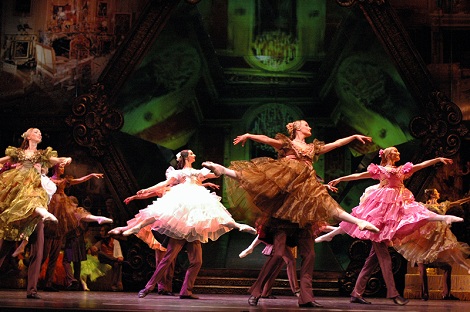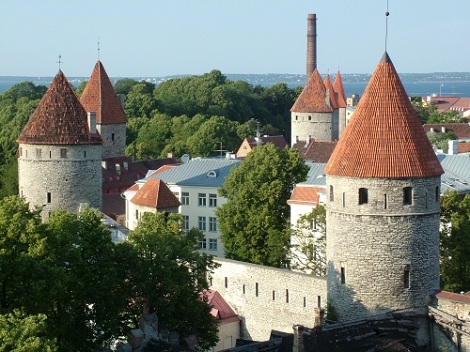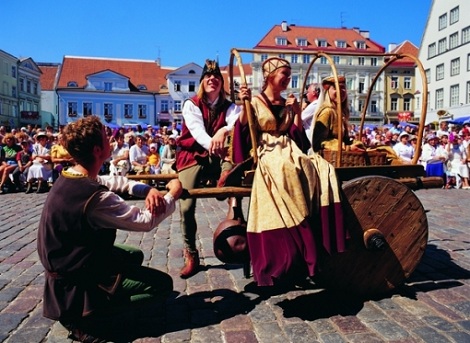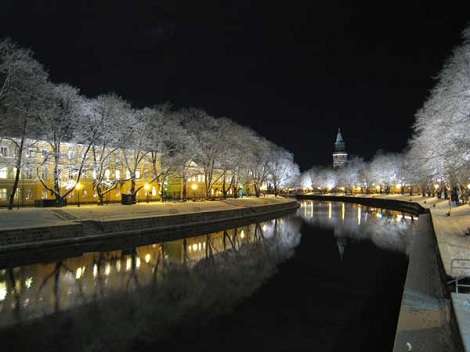With an aim to bring citizens of European Union closer together, the European City of Culture was launched in June 13, 1985, by the Council of Ministers, on the initiative of the Greek Minister of Culture Melina Mercouri, and since then the initiative has been a success among European citizens, becoming one of the most prestigious and high-profile cultural events in Europe with a growing cultural and socio-economic impact on a large number of visitors annually.

The European Capital of Culture is a city designated by the European Union for a period of one year during which the city is given a chance to showcase its cultural life and cultural development in cinemas, literature, music, theater, museums and exhibitions. The cities are chosen on the basis of the program they submit.
In 2011 Tallinn and Turku have been chosen to organize a series of exceptional cultural events, with a combined budget of approximately 100 million Euros.
Tallinn
Located on a historically unique crossroads where east and west, Northern and Central European cultures meet, Tallinn — one of Europe’s most enchanting and completely preserved medieval cities, is the capital city of Estonia and now also the European Capital of Culture 2011. Blessed with beautiful landscapes, narrow, cobbled streets beneath the 14th century churches, World Heritage-listed sites, historic gems, a wild mix of fine restaurants, cafes and bars, as well as pulsating nightlife, Tallinn never fails to amaze. In a word, Tallinn is where time has never stopped!

‘Stories of the Seashore’ is the theme that the city has chosen for its Tallinn 2011 program, highlighting the legends and inspiration that the sea has given countless generations of Estonians. Something will be happening in Tallinn every day in 2011, since the capital of culture will be bringing some of the world’s biggest names to Estonia. It is high time for the best stories in Europe to be told in Tallinn. For more details have a look at the program for 2011.

Turku
Located at the mouth of the Aura River in the southwest of the country, Turku — a truly unique fusion of old and new, is the provincial capital of southwest Finland and the second largest entry point into the country after Helsinki. Turku is best-known for its delightful historical architecture, famous boat restaurants and vibrant academic environment.
It has a cultural identity as Finland’s historical center and features many cultural venues, including several theaters, museums, concert halls, art galleries and a city philharmonic orchestra. Among key events during the year is Finnish-Japanese modern dance evening, Logomo exhibitions and various opera and jazz performances.
Turku is also the official Christmas city of Finland, where each year on the 24th of December the ‘Christmas Peace of Finland’ is declared at the Cathedral of Turku. Fine and fantastic Finland is waiting for you!
The fact that Tallinn and Turku are geographically very close (about 177 km air-line distance) has encouraged the two cities to cooperate in organizing their cultural events, including the cooperation in tourism management, as many travel agencies offer packages for tourists to experience cultural events in both cities.
Future European Capitals of Culture have already been chosen for the years up to 2019. They include:
• 2012: Guimarães (Portugal) — Maribor (Slovenia)
• 2013: Marseille (France) — Kosice (Slovakia)
• 2014: Umea (Sweden) — Riga (Latvia)
• 2015: Mons (Belgium) — Plzen (Czech Republic )
• 2016: Spain — Poland
• 2017: Denmark — Cyprus
• 2018: Netherlands — Malta
• 2019: Italy



